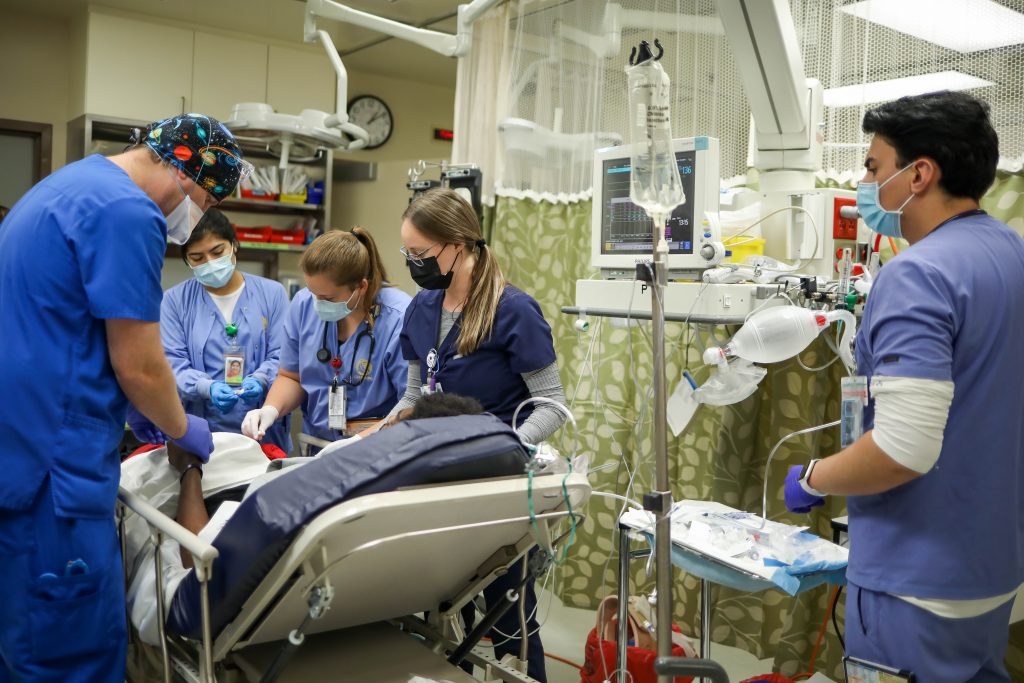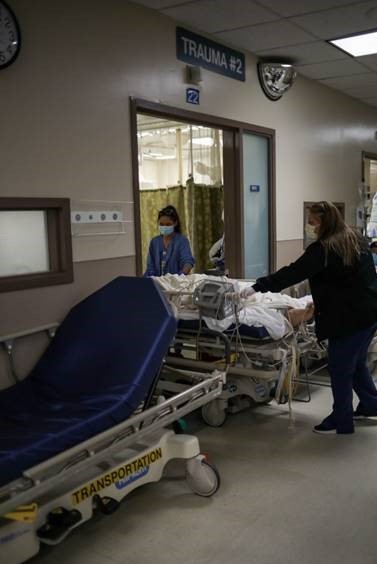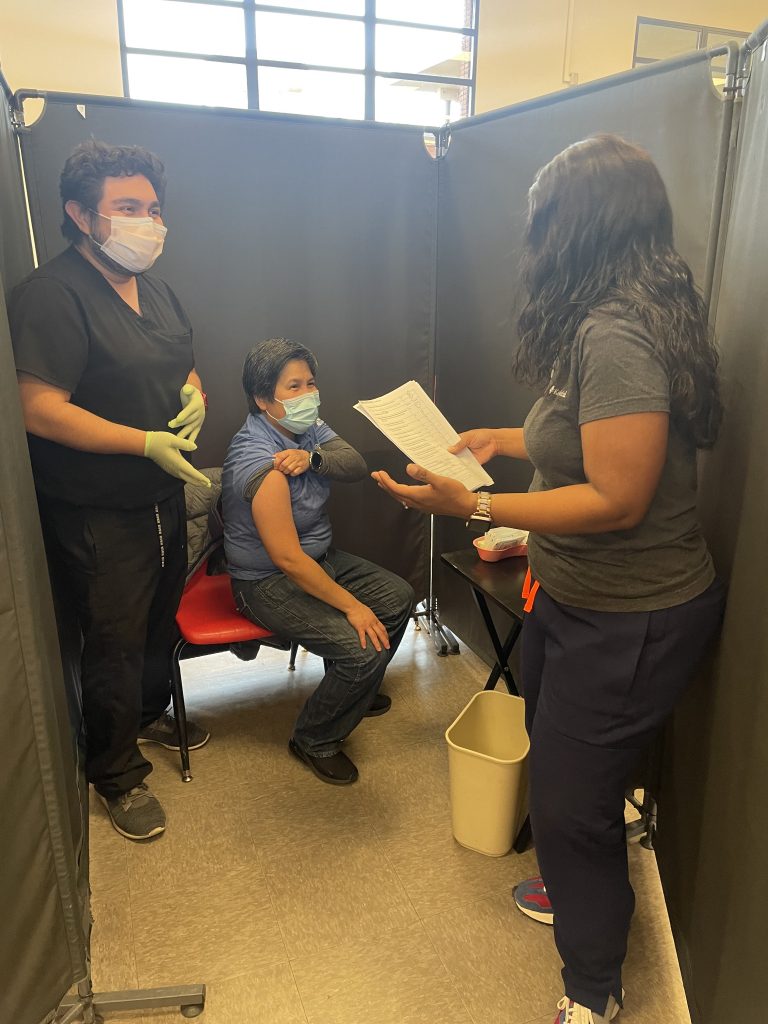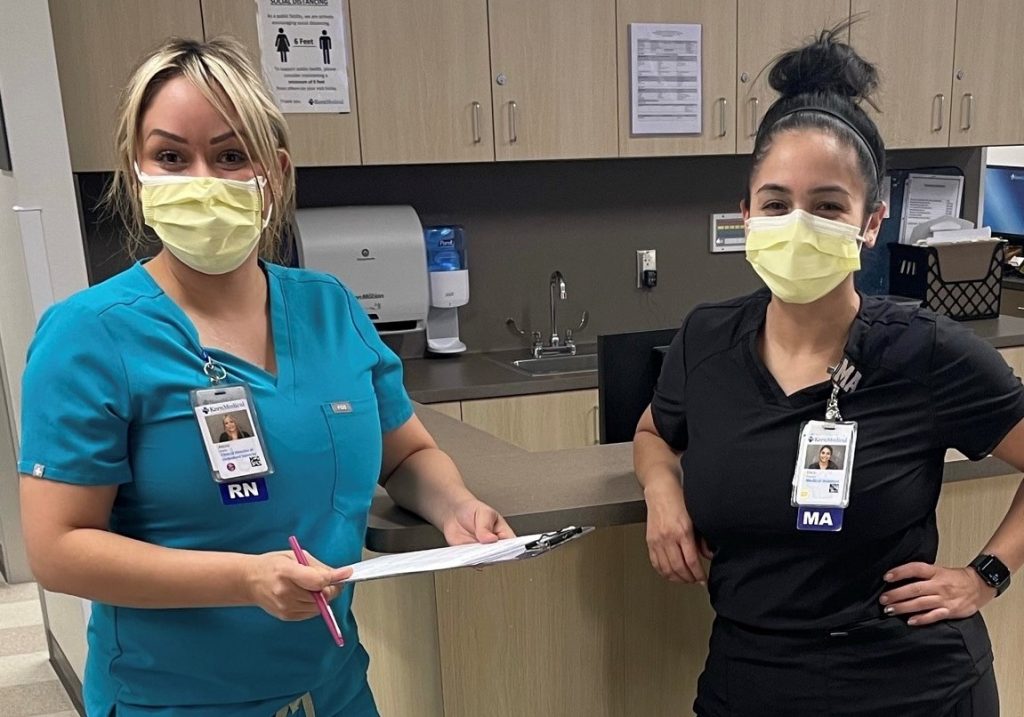Article by: Aisling Carroll

Since the pandemic began, residents of Kern County have landed inside Kern Medical in non-stop numbers. And it’s not just due to contracting COVID-19, which has been consistently higher here than in other parts of the state.
In a continuous cascade of cases, people are rushed to the hospital’s Trauma Center. They’ve crashed in motor vehicle accidents, attempted suicide, or were the victims of violence and domestic abuse.
“A lot of terrible things have happened in our county that people don’t know about,” said Scott Thygerson, chief executive officer at Kern Medical.
“We are running double our ICU levels, and we have a lot of sick babies.”
– Scott Thygerson
“Traumas went through the roof almost immediately [when the pandemic hit],” said Thygerson. “Within the first month, we went from 235 trauma activations a month to 290. It has not stopped or slowed down since.”
Historically, such tragedies spike in the summer, but trauma season has been year-round since the onset of COVID-19.
As a result, trauma patients have found themselves in one of the busiest centers in the state and the only one for many miles.
Patients of all ages at Kern Medical are also acutely ill with conditions unrelated to trauma and COVID-19. Thygerson believes delayed care during the pandemic may be driving some of these admissions.
“We are running double our ICU levels, and we have a lot of sick babies,” said Thygerson. “The neonatal intensive care unit is full.”
Kern Medical also runs the area’s only inpatient psychiatric unit in an acute care hospital, which is also full. And patients in need of psychiatric care are overwhelming the hospital’s emergency department.

Patients struggling with their mental health are also identified far more frequently at the 10 Kern Medical clinics dotted across the county.
“Nurses are physically exhausted, they’re mentally exhausted, and they’re not exempt from dealing with a lot of the same issues our patients deal with.”
– Paula Isbell
“We’ve seen a huge increase in patients scoring higher for being at risk for potential suicide,” said Natalee Garrett, vice president of strategic development at Kern Medical. As part of a standard screening process, patients complete a questionnaire on how they feel before they see a provider. For patients scoring high on the survey, psychologists also see them on the spot. These interventions are at record highs.
“Patients are so fragile, and they need attention now,” said Alicia Gaeta, a nurse at Kern Medical. “They don’t have three weeks to wait if they’re having a crisis. We make sure they don’t leave the room without talking to a psychologist and getting help.”
“Much-needed support from the state with nurses”
While patient demand has soared and not let up since the start of the pandemic, Kern Medical’s supply of nurses and other health care workers has thinned.
“Nurses are physically exhausted, they’re mentally exhausted, and they’re not exempt from dealing with a lot of the same issues our patients deal with,” said Paula Isbell, a nurse at Kern Medical. “They have to deal with all their struggles – getting sick, divorce, custody issues – put their scrubs on, act like everything’s fine, and take care of someone else’s life while their own is falling apart.”
Isbell notes that the pandemic has pushed some nurses already on the fence to leave the profession altogether. She said others have departed Kern Medical for lower-stress, higher-paid positions, such as working as a school nurse or for an insurance company.
Amid this constant and growing shortage, Kern Medical has had to depend heavily on more-expensive traveling nurses, many provided by the state.
“Thank goodness the state has been sending travelers. And thank goodness the state is providing financial support for those nurses. As a safety-net hospital, without this support, we would face significant issues,” said Thygerson.
So many medical heroes
It’s not just nurses who have been under duress at Kern Medical. Many other heroes have provided care during the pandemic, such as medical assistants who support patients and physicians in its busy outpatient clinics.
“We act as the backbone of the doctor and advocate for patients,” said Erika Guerrero, a medical assistant who works in one of the clinics. “And we’ve been working like crazy.”
“Medical assistants perform a vital job and work very, very hard,” said Renee Villanueva, chief ambulatory and outreach officer at Kern Medical.
Their commitment to their patients can be very personal.

“I love the patients that we serve. Many are the patients that no one wants to listen to. They may not have any money. And they need our help,” said Guerrero. “And me, coming from that background, I was that little girl, that teenager who grew up in that atmosphere. I know how it feels to be that person.”
“There are days when it’s so much easier to just worry about myself. And then I see how hard everyone’s working, and that encourages me to keep going.”
– Alicia Gaeta
Similar to many public health care systems across the state, Kern Medical has tried to buoy staff spirits. But in terms of what maintains a positive work environment in the hardest of times, Guerrero said, “It’s not about the materialistic things. It’s not about ‘we’ll give you this.’ No, it’s about the support. If I need anything, it doesn’t matter if it’s Sunday night, I can call my supervisors anytime, and they are amazing.”
Across Kern Medical, nurses, medical assistants, and care coordinators interviewed mentioned growing closer to their colleagues since the pandemic began, which may soften the bite of burnout. “They talk things through a lot with one another, and I think that’s how they kind of decompress,” said Garrett.
Isbell, an RN, believes this deep loyalty to co-workers and “knowing that for you to leave would be devastating to them” is what keeps many nurses on the floor.
“There are days when it’s so much easier to just worry about myself. And then I see how hard everyone’s working, and that encourages me to keep going,” said Gaeta.
Working hard to recruit
Before the pandemic, Kern Medical at times struggled to attract and hire doctors, nurses, licensed vocational nurses, medical assistants, respiratory therapists, and others to care for patients.
In addition to a decades-long and significant shortage of health care workers in the Central Valley, the public safety-net hospital has found itself struggling to compete with the area’s health systems in terms of what it can afford to pay staff.
One effective recruitment strategy that Kern Medical has employed during the pandemic is to continue to bring nurses in for face-to-face interviews and tours so they can get a better feel for the hospital’s learning atmosphere and tight-knit team.
“Once we get them in here, we have the opportunity to let them know that we’re going to support them, and we are going to foster a warm work environment,” said Isbell. Several nurses have told her that Kern Medical was unique in providing this in-person opportunity, and it guided their decision to say yes to the hospital’s offer.

Providing students with opportunities and filling the pipeline
Another Kern Medical recruitment strategy, which was in place before the pandemic, also focused on bringing in potential future staff to experience the hospital and clinics in action, including working with area high schoolers.
As part of the Health Careers Academy run by the Kern High School District, 40 to 50 students who expressed an interest in health care presented at Kern Medical daily to shadow medical staff, observe procedures, and perform clerical work. As one of Kern Medical’s leaders, Garrett started her health care career by participating in the Academy from 2003 to 2005.
“They could have a job right after school with us, they would already know our systems, and we could onboard them immediately after graduation.”
– Natalee Garrett
Given the significant need for more medical assistants and potential applicants right across the street, Kern Medical partnered with its neighbor East High to develop a tailored Medical Assistant Program for students.
The program aims to re-launch in fall 2022 after being postponed in 2021 due to the pandemic. Interested students will continue to learn hands-on patient care at the hospital and clinics and complete coursework while still in school. Once they graduate, they can take the exam to become a certified medical assistant.
“It does not cost students anything compared to private training programs that may charge as much as $16,000 to $20,000 to become a medical assistant through these private colleges,” said Garrett. “They could have a job right after school with us, they would already know our systems, and we could onboard them immediately after graduation.”
Kern Medical’s focus on who it recruits is core to retaining staff. “Getting the right people is so crucial. We attract people who have a passion for what they do,” said Garrett. And many of these students who start as medical assistants will go on for further education and training to enhance their skills in the medical field as medical professionals, including nurses, pharmacists, or computer engineers, with Kern Medical supporting them at each stage.
Again and again, Kern Medical, like all of California’s public health care systems, has done more than serve in its traditional role of caring for the most vulnerable during the pandemic. Through its indomitable workforce and culture of ingenuity, Kern Medical has ensured that its patients’ varied and dynamic needs are rapidly met, whether medical care for an accident or COVID-19 or a vaccination near their work site. As such, the health care system has been crucial to sustaining the state’s overall health care delivery during the pandemic, all the while executing its plans to welcome a new generation of health care heroes.
This blog is part of a series funded by the California Health Care Foundation.